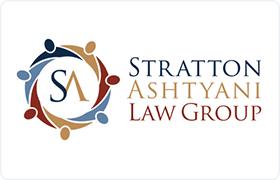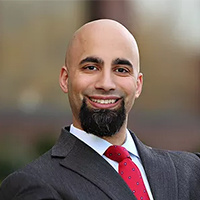SPECIAL ADMINISTRATOR
(1) In the law of wills and estates, a person appointed by the court to take charge of only a designated portion of an estate during probate. For example, a spe...
(more...)(1) In the law of wills and estates, a person appointed by the court to take charge of only a designated portion of an estate during probate. For example, a special administrator with particular expertise on art might be appointed to oversee the probate of a wealthy person's art collection, but not the entire estate. (2) A person appointed to be responsible for a deceased person's property for a limited time or during an emergency, such as a challenge to the will or to the qualifications of the named executor. In such cases, the special administrator's duty is to maintain and preserve the estate, not necessarily to take control of the probate process
 x
x

 Nima Ashtyani Franklin Lakes, NJ
Nima Ashtyani Franklin Lakes, NJ Practice AreasExpertise
Practice AreasExpertise
